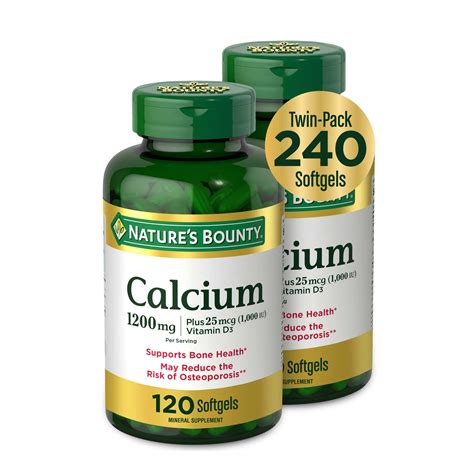Maintaining good health and wellness is essential for living a happy and fulfilling life. One crucial aspect of achieving this is ensuring our bodies receive the necessary nutrients to function optimally. Among the many essential nutrients, calcium plays a vital role in our overall health, particularly for our bones and teeth. In this article, we will explore the importance of calcium supplementation, its benefits, and how it can impact our overall well-being.
Calcium is the most abundant mineral in the human body, making up approximately 2% of our total body weight. It is crucial for building and maintaining strong bones and teeth, as well as supporting muscle function, nerve function, and heartbeat regulation. Despite its importance, many of us do not get enough calcium through our diets alone. This is where calcium supplementation comes into play.
The Benefits of Calcium Supplementation
Calcium supplementation can have numerous benefits for our health and wellness. Some of the most significant advantages include:
- Stronger Bones: Calcium is essential for building and maintaining strong bones. Supplementing with calcium can help prevent conditions such as osteoporosis, osteopenia, and fractures.
- Improved Dental Health: Calcium is crucial for healthy teeth and gums. Supplementing with calcium can help prevent tooth decay, gum disease, and other dental health issues.
- Reduced Risk of Chronic Diseases: Calcium supplementation has been linked to a reduced risk of chronic diseases such as hypertension, cardiovascular disease, and type 2 diabetes.
- Improved Muscle Function: Calcium is essential for muscle function and contraction. Supplementing with calcium can help improve muscle strength, endurance, and recovery.
- Supports Nerve Function: Calcium plays a crucial role in nerve function and transmission. Supplementing with calcium can help support nerve health and function.

Who Can Benefit from Calcium Supplementation?
Calcium supplementation can benefit individuals of all ages, but some groups may require more calcium than others. These include:
- Children and Adolescents: Calcium is essential for growth and development, particularly during childhood and adolescence.
- Pregnant and Breastfeeding Women: Calcium is crucial for fetal development and milk production.
- Older Adults: Calcium can help prevent age-related bone loss and fractures.
- Individuals with a High-Risk of Osteoporosis: Calcium supplementation can help prevent osteoporosis and fractures in individuals with a high-risk of developing the condition.
How to Choose the Right Calcium Supplement
With so many calcium supplements available on the market, choosing the right one can be overwhelming. Here are some tips to help you make an informed decision:
- Look for Bioavailable Forms: Choose a supplement that contains bioavailable forms of calcium, such as calcium citrate, calcium carbonate, or calcium hydroxyapatite.
- Consider the Dosage: Ensure the supplement provides the recommended daily dosage of calcium, which is typically 500-700 mg per day.
- Check for Additives: Opt for a supplement that contains additives such as vitamin D, magnesium, and phosphorus, which can enhance calcium absorption.
- Consult with a Healthcare Professional: If you're unsure about which supplement to choose, consult with a healthcare professional for personalized recommendations.

Tips for Taking Calcium Supplements
To get the most out of your calcium supplement, follow these tips:
- Take with Food: Take your calcium supplement with food to enhance absorption.
- Avoid Taking with Other Minerals: Avoid taking calcium supplements with other minerals such as iron, zinc, and magnesium, as they can interfere with absorption.
- Split the Dosage: Split the dosage into two or three times a day to maintain consistent calcium levels.
- Monitor Your Levels: Regularly monitor your calcium levels to ensure you're not over-supplementing.
Conclusion
Calcium supplementation can have a significant impact on our overall health and wellness. By understanding the benefits, choosing the right supplement, and following tips for taking calcium supplements, we can support our bone health, reduce the risk of chronic diseases, and maintain optimal muscle function. Remember to consult with a healthcare professional before starting any supplement regimen.
Gallery of Para Cal Calcium Supplementation





FAQs
What is the recommended daily dosage of calcium?
+The recommended daily dosage of calcium is 500-700 mg per day.
Can I take calcium supplements with other minerals?
+No, it's best to avoid taking calcium supplements with other minerals such as iron, zinc, and magnesium, as they can interfere with absorption.
Can I take calcium supplements if I'm pregnant or breastfeeding?
+Yes, calcium is crucial for fetal development and milk production. However, consult with a healthcare professional before taking any supplements during pregnancy or breastfeeding.
